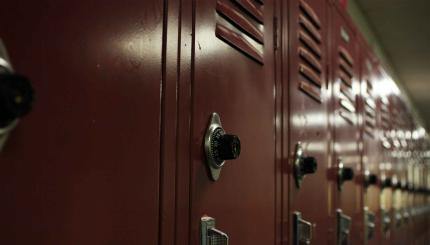Building Community in a School Library
Students should feel welcome in their library. Luckily, programming is a great way to build community.
Students should feel welcome in their library. Luckily, programming is a great way to build community.
An academic library shares its approach to program planning, risk taking and putting students first.

Help students unwind during stressful finals weeks with a simple and fun program that will get them singing!
Use these resources to teach students to be thoughtful researchers and critical consumers of information.
Try some covert methods to let teachers know about all the resources your school library has to offer.
With TED Talks' TED-Ed Clubs, librarians can encourage young people to share their big ideas.
A weekly trivia challenge encourages students to explore lesser-known parts of their library.
Pick a corner of the library for drop-in activities, set out the supplies and instructions, and let it go!
A university library created a winning storytelling program from the ground up — and so can you.

Help middle schoolers prepare for the upcoming school year with crafts to adorn their lockers.